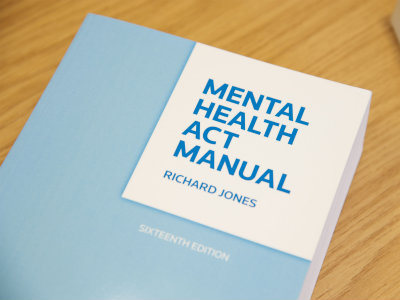
Substandard ward environments and problems getting beds and intensive care for acutely unwell patients are key issues blighting mental health services that would not be tolerated in other parts of the NHS, the Care Quality Commission has warned.
The findings, included in the regulator’s State of Care 2013-14 report, come from an analysis of themes identified from the inspections of 12 mental health trusts assessed under a revised inspection model launched last year.
Inspectors had identified good practice and saw ‘caring and committed staff’ but also found several examples of care that ‘would not be acceptable in an acute hospital’, the CQC report said. The government has made a commitment to ‘parity of esteem’ – equality – between mental and physical health services.
The report highlights four key areas of concern in mental health services:
- Unavailability of admission beds: The pressure on beds in local services meant patients were being sent long distances from home for care and shuffled from ward to ward to free-up beds in admission units. “Both practices make it difficult for carers and families to maintain contact and leads to discontinuities of care,” the CQC found.
- Unavailability of psychiatric intensive care: A lack of psychiatric intensive care units (PICUs) – specialist wards for the most distressed and unwell patients – was an issue at several trusts. One trust regularly transported patients over 100 miles to a PICU. “It would be very unusual for an acute hospital that admitted people with medical emergencies to have such poor access to intensive care,” the CQC said.
- Unsuitable physical environments: The regulator found some mental health wards were located in “old, poorly maintained buildings” that made it hard for staff to meet patient need. Patient safety was further compromised on some wards by the presence of ligature points that pose a risk to suicidal patients, the report added. Several mental health wards did not comply with the requirement for all accommodation to be same sex. “This both compromises the dignity of people receiving care on these wards and, if coupled with poor lines of sight that impair the ability of nurses to observe the ward, can potentially put patients at risk from sexual violence,” the report said.
- Poor crisis care response: The CQC report reiterates the findings of its survey of ‘NHS place of safety’ availability for people detained under the Mental Health Act by the police. The regulator found that most areas had access to an NHS place of safety but there was variability in terms of how they were staffed and their operational hours. Problems accessing NHS place of safety units meant that people were detained to police custody, rather than an NHS unit, more than 7,000 times in 2012-13. When a person experiences a crisis with their physical health, they would expect to be able to access an emergency healthcare facility and to be assessed by a health professional if necessary. The same should be true for people experiencing a mental health crisis,” the CQC report said.
Over the past year, a series of investigations by Community Care and BBC News have highlighted the impact of bed shortages on professionals and staff. The number of patients sent to beds long distances from home rose by a third last year and problems accessing specialist beds for acutely unwell children has seen hundreds admitted to adult psychiatric wards.


 Family help: one local authority’s experience of the model
Family help: one local authority’s experience of the model  ‘I spent the first three months listening’: how supportive leadership can transform children’s services
‘I spent the first three months listening’: how supportive leadership can transform children’s services  How senior leaders in one authority maintain a culture of excellence
How senior leaders in one authority maintain a culture of excellence  How staff support ensures fantastic outcomes for children and families
How staff support ensures fantastic outcomes for children and families  Workforce Insights – showcasing a selection of the sector’s top recruiters
Workforce Insights – showcasing a selection of the sector’s top recruiters 

 Facebook
Facebook X
X LinkedIn
LinkedIn Instagram
Instagram
did i tell you about the time i had to travel 266 miles to get to a tribunal and 266 miles back. the patient was placed there as it was the closest PICU bed. his family could not afford to visit. scandalous!
Tomorrow I am attending my brothers funeral. He hanged himself on 1st October. he had made 3 serious attempts in the previous month and each time went to hospital. he was admitted to a Walsall hospital on monday morning and was allowed to walk out on Tues evening . his case ticked all the boxes alarm bells should have been ringing he was found the next morning hanging in a church yard.
When are seriously ill mental health patients going to get the treatment they need. if his diagnosis had been a cardiac arrest he would have been given an intensive care bed.
Mental health services are totally inadequate.